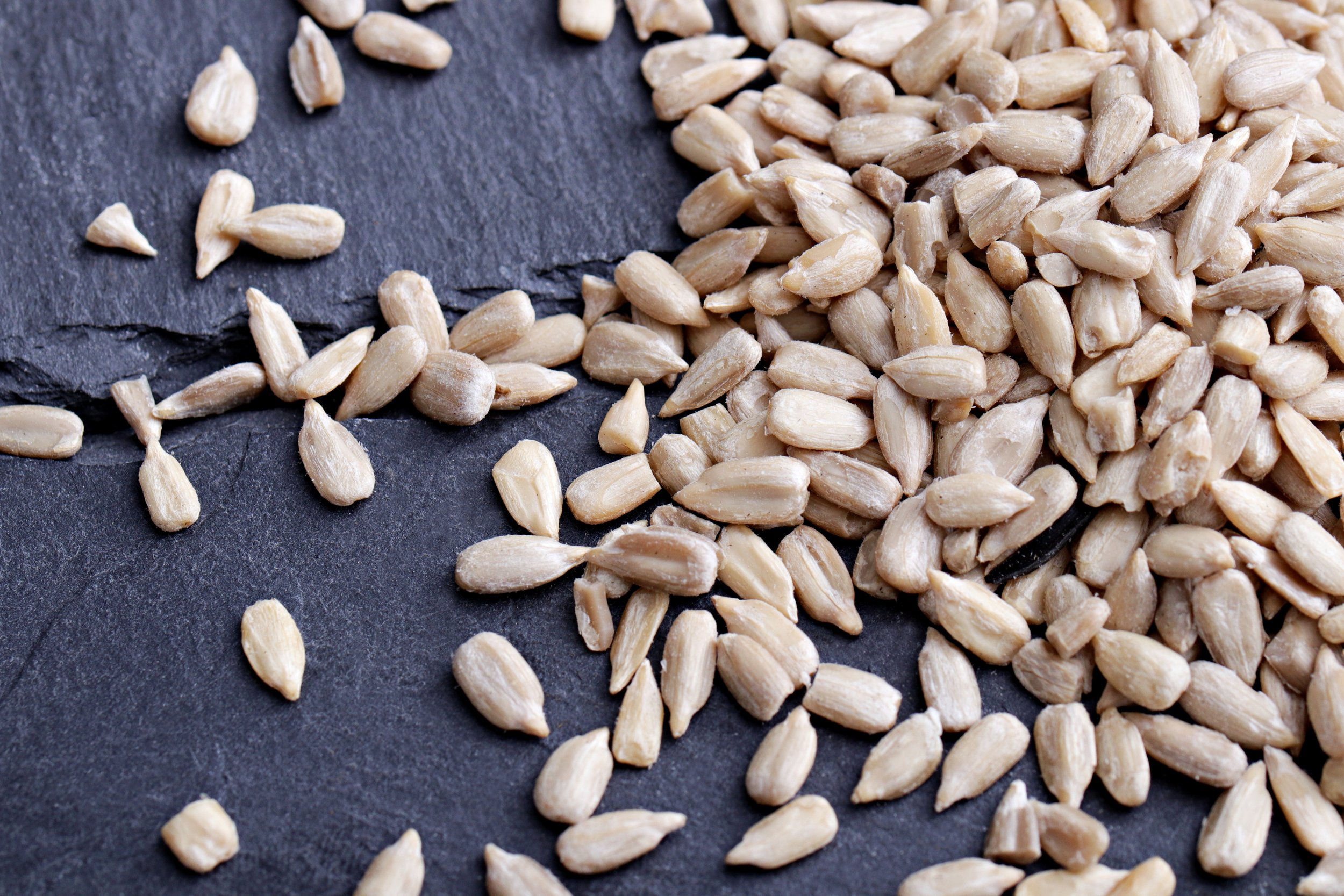Vitamin E
Vitamin E is a fat-soluble vitamin that is essential to human health.

Vitamin E
-
Vitamin E is a fat-soluble vitamin that is naturally present in food. There are eight different forms of vitamin E, with α-tocopherol as the most active form. Vitamin E is typically in the form of α-tocopherol acetate in supplements. Additionally, vitamin E is available in fortified foods.
-
Vitamin E is a powerful antioxidant essential in protecting cells from oxidative damage from free radicals and reactive oxygen species (ROS). Additionally, vitamin E is involved in immune function, cell signaling, regulation of gene expression, and other metabolic processes.
-
15 mg/day (22.4 IU) is recommended for adult males and females. Requirements increase to 19 mg/day (28.4 IU) during lactation. Some examples of approximate vitamin E content in food include 1 tbsp wheat germ oil (20.3 mg), 1 oz sunflower seeds (7.4 mg), 1 oz almonds (7.0 mg), and 1 oz peanuts (2.2 mg) or 2 tbsp peanut butter (2.9 mg).

Vitamin E
-
Is a powerful antioxidant
Vitamin E is a powerful antioxidant that protects cells from the damaging effects of free radicals and reactive oxygen species (ROS). Free radicals combine with oxygen and create ROS. Free radicals occur both endogenously and exogenously. Endogenous free radicals are a product of energy metabolism, and exogenous free radicals are environmental exposure to pollution, cigarette smoke, and ultraviolet radiation from sunlight.
-
May reduce the risk of chronic diseases
As a potent antioxidant, vitamin E may help prevent and delay certain chronic diseases associated with free radical damage and oxidative stress.
-
Is essential for cellular function
Vitamin E is essential for immune function, cell signaling, and regulation of gene expression.
Increase Your Vitamin E Intake
-
Eat nuts and seeds
Almonds, sunflower seeds, hazelnuts, and peanuts are rich in vitamin E.
-
Eat green plant foods
Spinach, broccoli, and other green leafy vegetables are great sources of vitamin E.
-
Eat plant oils
Wheat germ, sunflower, safflower oil, and soybean oil are rich in vitamin E.